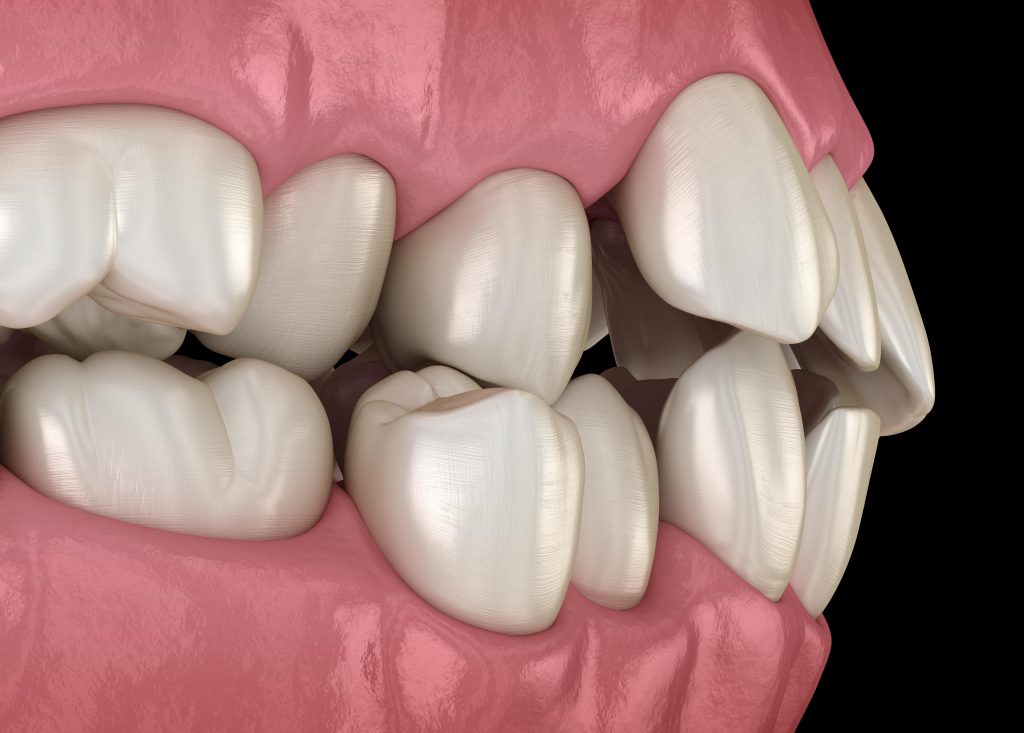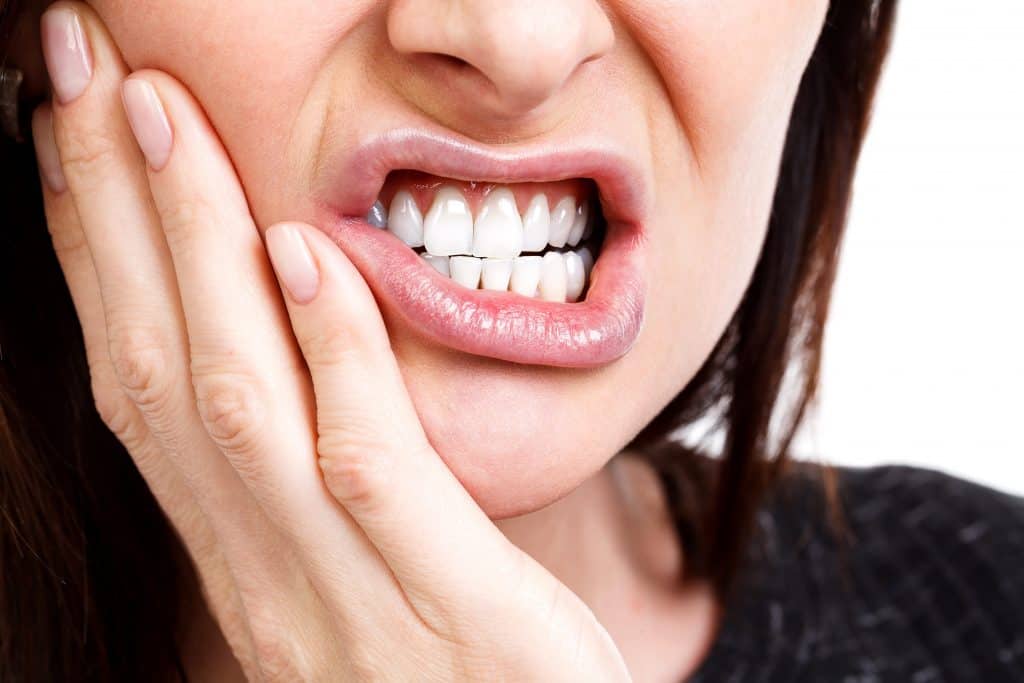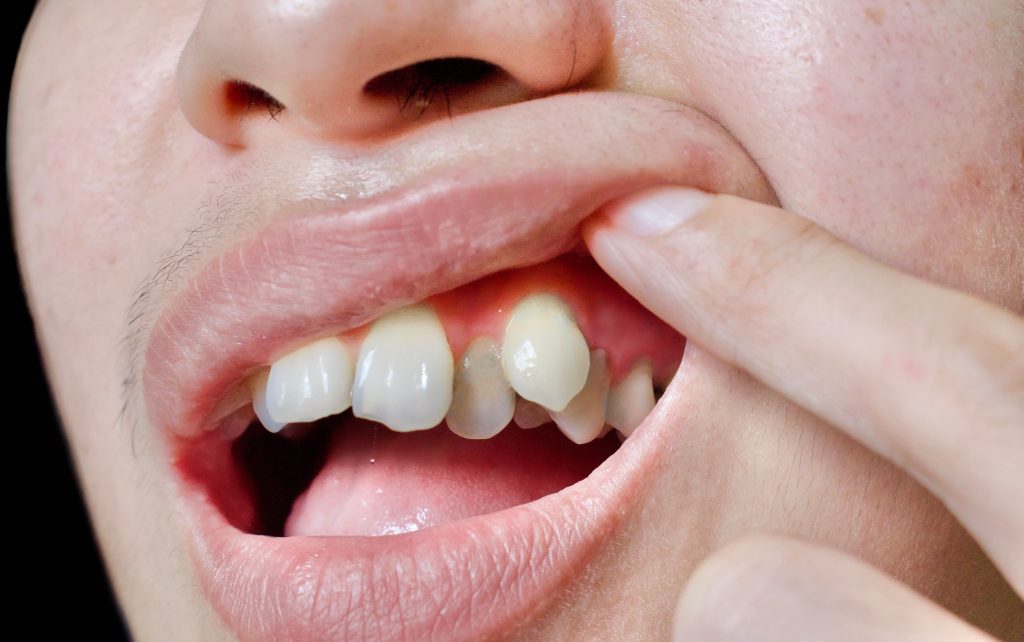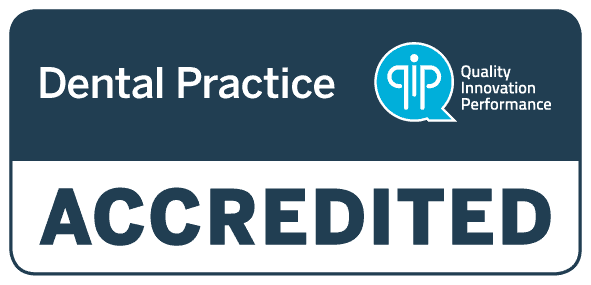When someone mentions to you “you have a bad bite”, you’re probably wondering, what does this mean? As you read this, you’ll begin to realise why strong “occlusion”, the way your teeth fit together, is very important.
Occlusion has a direct impact on your oral health. This means that for your oral health to remain strong, you must have an aligned bite. This means that your teeth fit together properly and there is no adverse impact on your teeth and gums when you open and close your mouth. The perfect bite is when your upper teeth sit slightly in front of your lower teeth.

What Are The Different Kinds Of Bite?
Your bite is an important part of your oral health. If you have a bad bite, this is known as “malocclusion”, where your teeth are not in their rightful position to meet.
Below outlines the different kinds of bites:
- Crossbite – Where your upper teeth sit inside of the lower teeth when biting down. As you bite down, the front outer layer will grind with the inner layer of your lower teeth, causing wear-and-tear.
- Overbite – Where your upper stick too far out from your lower teeth. This can lead to tooth decay and gum disease.
- Underbite – The lower jaw sits in front of the upper jaw, meaning the lower teeth remain in front of your upper teeth when biting down. This can cause significant stress on your jaw joints.
- Deep Bite – Where your bite is closed and your upper front teeth are covering the bottom teeth too much. This means that your upper teeth can bite into your gums, causing inflammation.
- Crowded Bite – This indicates “impacted” teeth, where a crowded area means that there is inadequate space in the jaw for all teeth to grow straight. This causes a crooked appearance to your smile.
What Are The Symptoms Of A Bad Bite?
Any deviation of a normal bite is a sign of malocclusion. Here are some of the symptoms you may experience with a bad bite:
- Your teeth are improperly aligned. This is formerly known as tooth misalignment
- Regularly biting your tongue and/or inner cheeks
- Difficulty biting down on food without doing damage to your teeth
- Problems with your speech
- Difficulty in breathing
- An awkward appearance to your smile

What Are The Causes Of A Bad Bite?
Malocclusion can form for a number of reasons, specifically due to habits that you may have developed during the toddler and adolescent years.
- Thumb-sucking as a child
- Trauma injuries that have damaged your jaw
- Impacted teeth
- Teeth grow in an abnormal way, such as behind or infront of other teeth
- Bottle-feeding during toddler years
- A lack of oral care
If you or your child has a bad bite, tell us! We are here to help you and your smile. We have a range of cosmetic treatments such Invisalign to help you. Get in touch with our experienced Wollongong dentists and Fairy Meadow Dentists today!!



